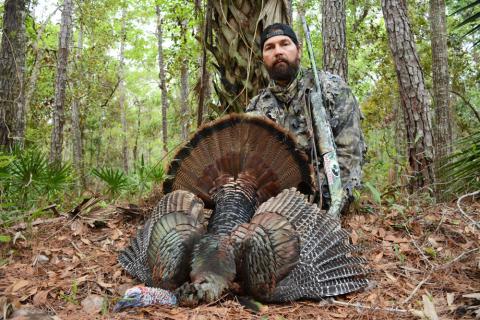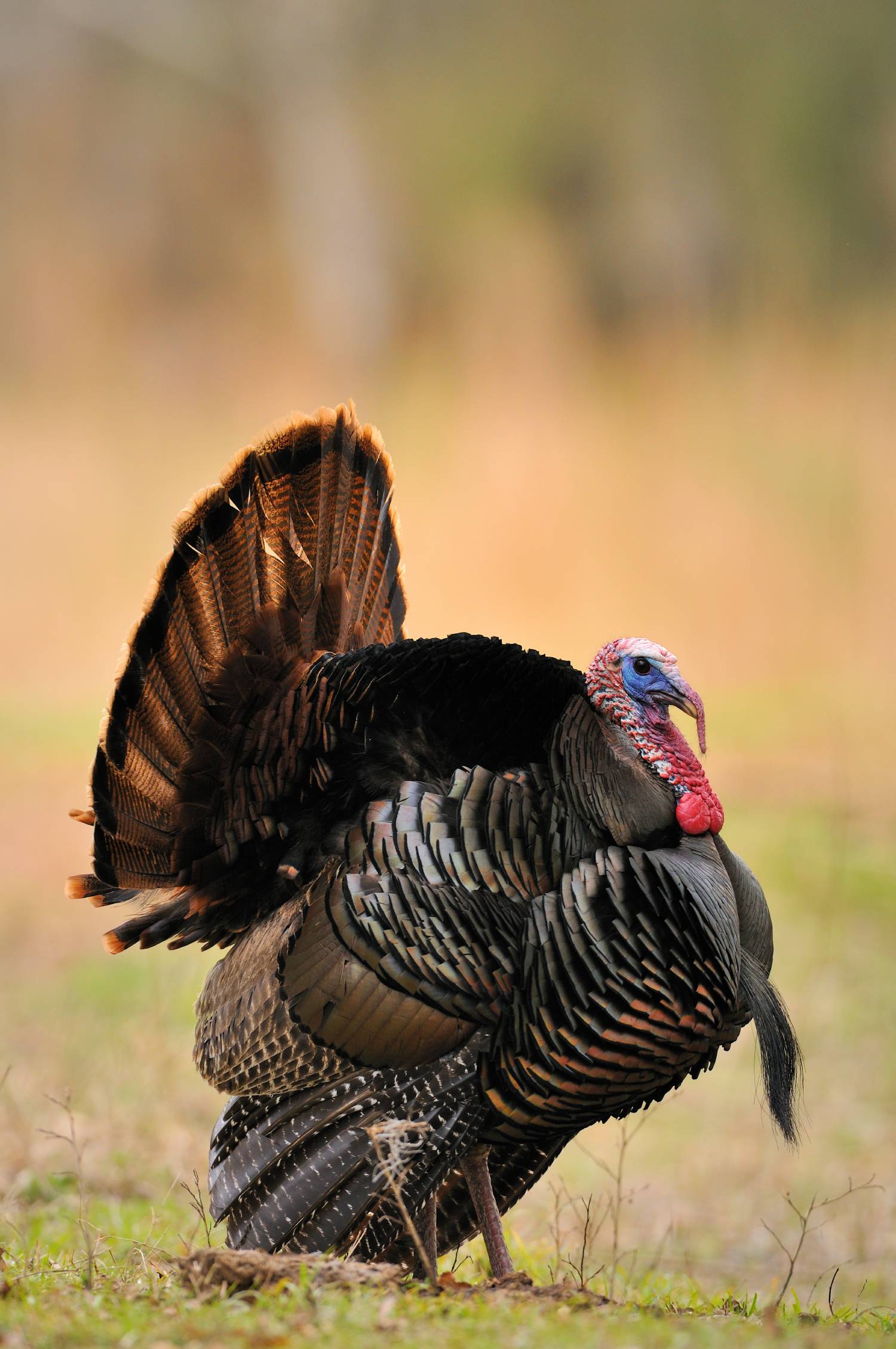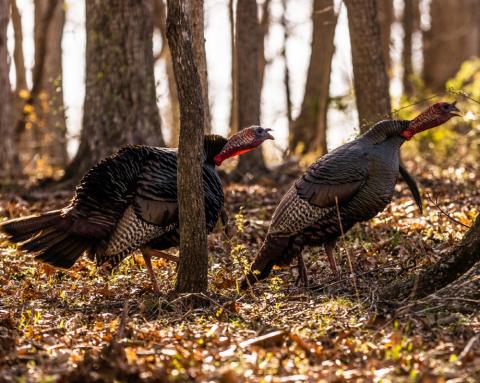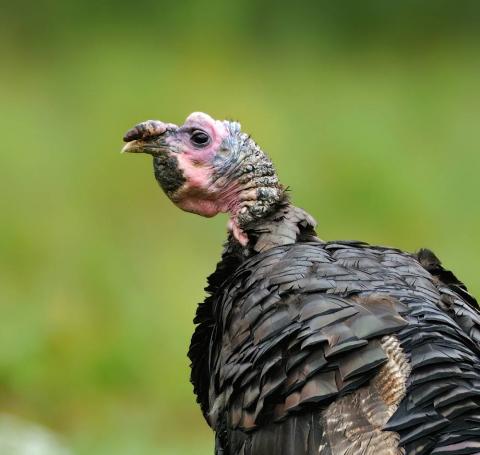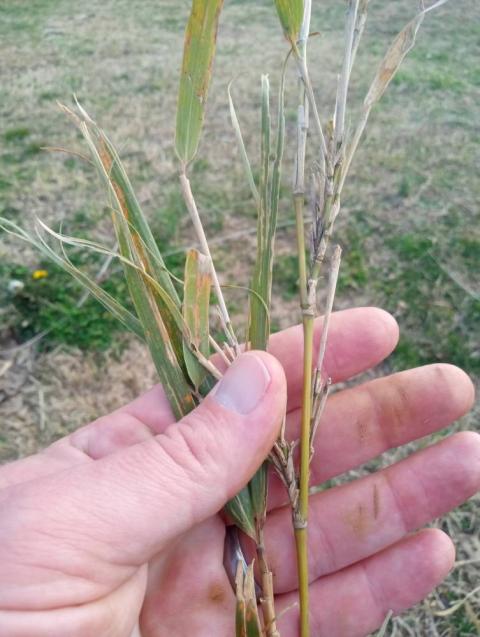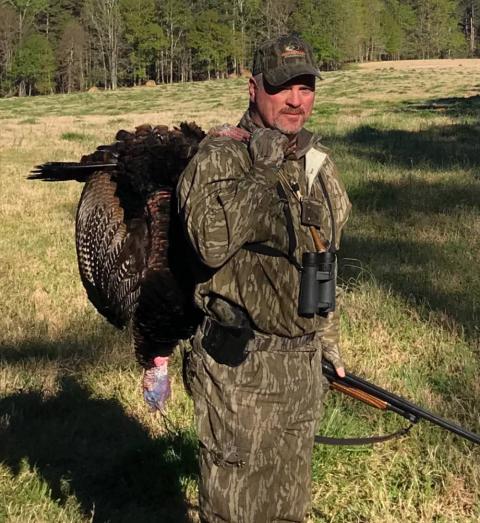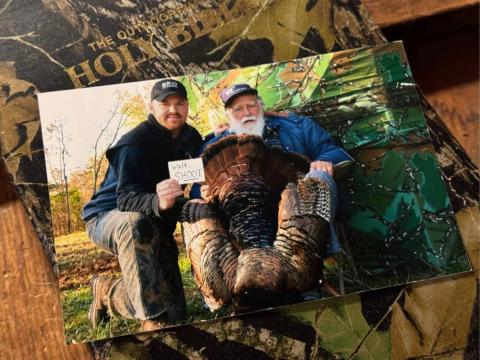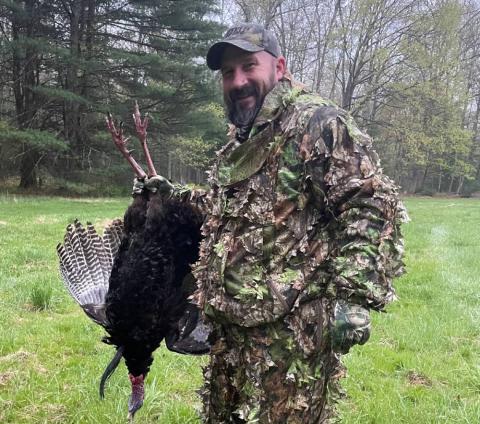provided by John Phillips
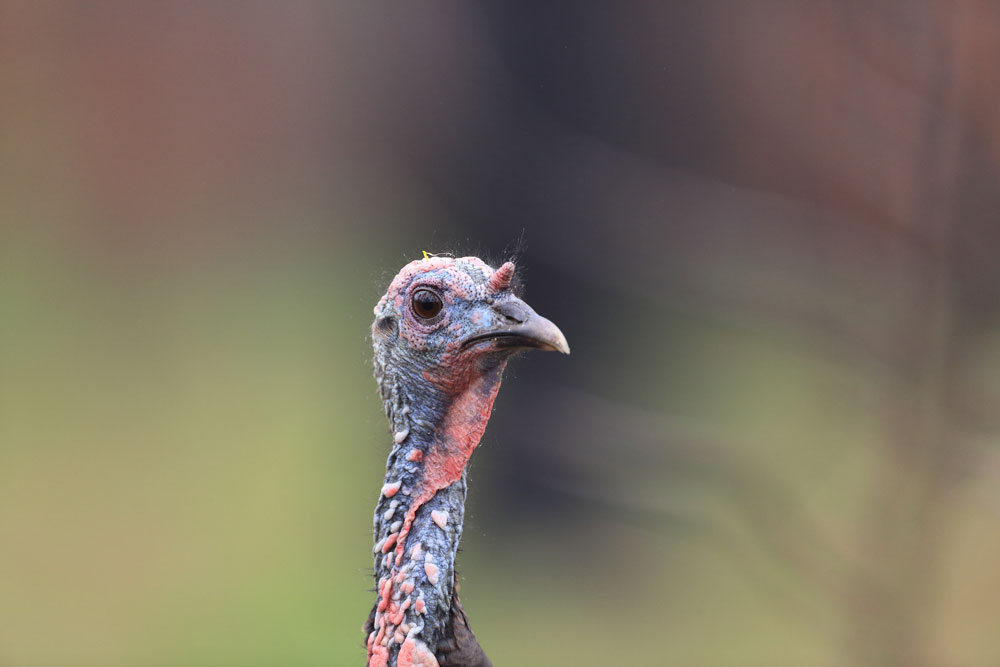
Mossy Oak Pro Ron Bachmann of Spring Hill, Florida, is living his dream of hunting and fishing fulltime since his retirement three years ago, after 20 years as a cable-company lineman. He’s been hunting turkeys for 21 years and has been on the Mossy Oak ProStaff for nine years. Florida’s spring turkey season opens at various times, according to where you plan to hunt – private and/or public lands, but Florida always offers the first spring turkey-hunting opportunities in the country. Florida is also the only place in the world where the Osceola subspecies of wild turkey is found, with 80,000-100,000 Osceola birds primarily concentrated in the center 2/3 of the state. Today a guide with Florida Outdoor Experience, Bachmann has hunted Rio Grandes, Merriam’s and Eastern wild turkeys too.
Personally, I'm not much of a fan of a pop-up blind, but as a guide, I have to be willing to do what I have to do to help my hunter get a turkey - regardless of the type of weather we’re hunting in, or how much my hunter likes to move. There is no doubt but that a lightweight pop-up blind can solve a multitude of turkey-hunting problems. If we are hunting in the rain, the hunter can stay dry in the blind. If we’re having a blowing wind, the blind solves that problem also, and if the weather is cold, the blind breaks the wind and makes turkey hunting a little more comfortable. Florida stays pretty green most of the year, and we have plenty of those palmettos that we can cut down and stick the branches around the hunter and make a really good blind. So, most of the time a natural blind that I can build quickly anywhere solves most of the hunters’ moving problems and drastically increases his or her odds for taking a turkey.
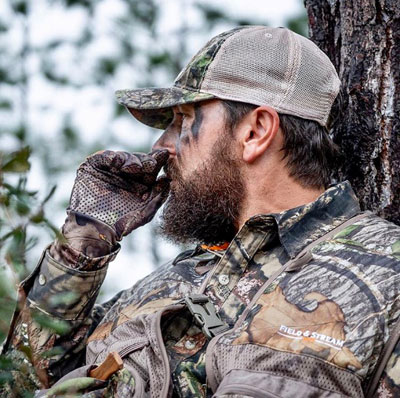 Most turkey hunters believe that hunting Osceola gobblers is more difficult than hunting any other turkey, but that is not necessarily true. What most hunters mean when they say the Osceola gobbler is hard to take is that finding a place to hunt an Osceola turkey is sometimes difficult. Because south Florida is not the size of a state, and there is limited access to taking these birds, even though we do have some wildlife-management areas that are available for public hunting, but some of the best places to hunt turkeys will be on leased land. Many of the clients that I guide are flying in from other states to complete a Grand Slam of turkeys in the United States, and probably 80 percent of my clients fit into this category. Then I get about 10 percent of my hunters who never have turkey hunted before, and they come to learn how to hunt turkeys. The rest of the hunters are returning clients who enjoy coming and hunting with us every season at the Florida Outdoor Experience.
Most turkey hunters believe that hunting Osceola gobblers is more difficult than hunting any other turkey, but that is not necessarily true. What most hunters mean when they say the Osceola gobbler is hard to take is that finding a place to hunt an Osceola turkey is sometimes difficult. Because south Florida is not the size of a state, and there is limited access to taking these birds, even though we do have some wildlife-management areas that are available for public hunting, but some of the best places to hunt turkeys will be on leased land. Many of the clients that I guide are flying in from other states to complete a Grand Slam of turkeys in the United States, and probably 80 percent of my clients fit into this category. Then I get about 10 percent of my hunters who never have turkey hunted before, and they come to learn how to hunt turkeys. The rest of the hunters are returning clients who enjoy coming and hunting with us every season at the Florida Outdoor Experience.
I really enjoy calling the birds, and I like trying to outmaneuver them and attempting to overcome all the problems that a turkey can create for a hunter. I like to cause a turkey to do something that he is not supposed to do. The turkey usually gobbles, and the hens come to him. When I start calling, I'm trying to get him to come find me, which is an unnatural act for a turkey to perform. If I can get a turkey to do that, I've had a really rewarding hunt - even when I'm not the one who squeezes the trigger.
But to be honest, I have turkey hunting on my mind 365 days a year. Although I guide for deer and for inshore saltwater fishing, turkey hunting is my favorite form of guiding. I’m so fortunate to have made guiding my fulltime job. I will be 50 years old in 2020, and I’m fortunate enough to have a good pension and have made some good investments. So, now I can follow my dream and live and work in the outdoors. I guess you can say that I've worked all my life to finally be able to be a hunting and fishing guide for the rest of my life. Today, I'm living my dream.














